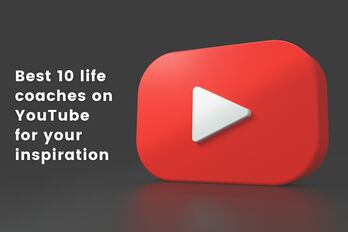August 23, 2022 - Coaching Online
Coaching blog: How to start a blog that people will read?
A coaching blog is more than just about sharing information. When done right, it can generate leads and revenue for your business.

Visibility, brand awareness, messaging and demonstrating authority in your area of expertise.
All of the above are vital elements towards building a successful coaching business. To be seen, heard and trusted, you need to grow your presence on various digital channels and differentiate yourself from your competitors.
Besides email marketing and the familiar social media outlets (Facebook, LinkedIn, Instagram, etc.), a coaching blog is a must-have to cover all your online bases.
When done right, your blog will have a lasting positive impact on your coaching business. It’s the gift that keeps on giving!
But, what are the secret ingredients of a successful coaching blog?
How will your blog posts be found by the people that you want to attract?
What would make them read your article?
What would make them keep returning to your blog?
A blog is not just a digital whitespace to pen down your nuggets of wisdom. Don’t get me wrong… the foundation of any great blog is solid content and useful information.
But, besides great content, there are a myriad of other considerations that you need to be aware of when writing articles for your coaching website blog.
With this firmly in mind, let’s dive into how to turn solid content into a successful blog that gets found ultimately by the people that you want to attract.
WHY A COACHING BLOG IS IMPORTANT FOR YOUR BUSINESS
Social media channels such as Facebook and LinkedIn drive short-form content for marketing your business. Email marketing aids outreach to prospects and helps drive engagement and retention of existing clients.
Blogging, on the other hand, offers long-form content for your audience that helps you connect to the most important marketing channel in the world: Search Engines.
91% of US adults use search engines every month.
But know this: only the top results in search engine rankings receive the majority of traffic. In fact, according to HubSpot, the top five results in search engines get 75% of all search traffic.
Having a blog on your website enables you to write articles about specific topics using keywords that your audience is searching for. If you simply own a website that speaks about what you do, what you offer and who you coach, the number of ‘hits’ you get from online search will be few and far between.
This is because you can only write so much content about yourself and your services on your website’s ‘Home’, ‘About’ and ‘Services’ pages. If you take this approach, your website is nothing more than a sales page. Even if your website is SEO-optimized for your target keywords, chances are it’s not ranking high on search engines and you’re missing out on traffic from organic searches.
A successful coaching blog will be a game changer. You can publish more web pages with relevant content and expand upon your website so that it’s not just another salesy pitch. Your blog enables you to elaborate upon your value and credibility by demonstrating knowledge in your area of specialization.
You will notice an increase in the number of visitors to your website, and as a result, your business will grow. You will get more inquiries and leads, especially when your content and tone of voice resonates with them.
BENEFITS OF A COACHING BLOG
As of date, there are more than 600 million blogs on the internet and 6 million blog posts that are published daily. More than three-quarters (77%) of internet users regularly read blogs.
Source: Financesonline.com
According to Demandmetric.com, companies with blogs produce an average of 67% more leads monthly than companies that don't have a blog.
But, why is that?
Let’s look at 5 benefits of a coaching blog.
Establishes trust and authority
In a world of intrusive ads, a coaching blog encourages you to produce authentic articles about your niche to your audience, without distractions. Consumers want to learn about brands from custom content rather than traditional ads.
Blogging drives organic traffic to your website
For clients who already know you, they would search immediately for your name or business on Google. But, for the rest of the world who don’t know that you exist, their searches typically begin with: “How”, “What”, “Why”, “Who” or “When”. Hence, the purpose of your blog posts is to provide answers that people are seeking. When well-optimized for SEO, your blog post gets indexed by Google and will show up on the first page of the Search Engine Results Page (SERP), which dramatically increases your chances of being seen.
Blogging helps you get discovered on social media
When visitors get value out of your posts, a natural reaction is to share it with their friends, peers and community. Getting social shares increases your exposure to new communities and networks.
Blogging helps with your website’s ranking
Backlink building is one of the pillars of Search Engine Optimization (SEO). Backlinks (or inbound links) represent a "vote of confidence" from one site to another. When executed properly, it increases your website’s authority, and gets you additional SEO brownie points by Google.
Blogging opens up business opportunities
As your blog gains prominence and your name and brand start popping up for searches related to your niche, industry peers will start to notice. It’s not uncommon for people to start reaching out to ask if they could guest post on your blog (either paid or with a reciprocal benefit for you), or to discuss business collaboration/partnerships. Organizations may even reach out with business opportunities for you to provide coaching / speaking services.
The beauty about blog posts is that they remain on search engines’ pages long after being published. If they rank on Page 1 of Google, give yourself a well-deserved pat on the back! You will continue to reap the rewards long after the initial investment of time and effort that you put into the post.
5 ESSENTIAL TIPS FOR A SUCCESSFUL COACHING BLOG
Yes, there are many benefits of a great blog.
But, make no mistake - it takes time, effort and patience to build a successful coaching blog. Along your journey, you will experiment, discover and evolve as you get more experience about what works and what doesn’t.
After all, as I mentioned earlier, there is much more than just solid content that you need to consider when executing your blog strategy.
Learning how to optimize your blog for search engines is yet another skill that you need to master, or at least be conscious about, as a business owner. It requires research and spending time to learn more about SEO.
It can be overwhelming and, for many coaches, it just makes them go teary-eyed! The purpose of this post is to help you understand the importance of SEO at a high level.
We’ve put together 5 essential tips to help you on your coaching blog journey.
OPTIMIZE YOUR BLOG POST
Here’s a checklist on how to optimize your blog post:
-
Identify your target audience (read our post about why a coaching niche is important)
-
Don’t forget to keyword search
Manage Your Coaching Practice in One Place
CoachVantage automates your business workflows so you can focus on impactful coaching results.
Start Free TrialNo Credit Card Needed -
Ensure that your meta description is interesting
-
Write an eye-catching title
-
Include visuals (images, pictures, graphics) and use alt text for them
-
Include a call-to-action (CTA)
You can also watch this video from Hubspot.com for a more in-depth explanation on how to write an SEO optimized blog post.
BE UNIQUE AND ADD PERSONALITY
Let’s say that you have already identified your target audience, done your competitor research and selected suitable keywords to write about.
The next step is to check out what other coaches or service professionals who share the same space as you are writing about. From the data that you have acquired through your research, find a pattern of similarities or information gaps in their content.
Then, imagine yourself as the information seeker and think about how you would want those gaps to be addressed. Reading other blogs may also provide inspiration, ideas and motivation for your own post.
To stand out from the crowd, provide a unique angle and address any information gaps, present things in a way that’s easy to understand and do it with your own voice and creativity. Inject your brand of humor and personal anecdotes too, if appropriate.
Remember that while you must have Google’s SEO algorithm rules in mind when structuring your blog, the first and underlying principle is to write your posts for a human to read and derive value from.
CREATE A BLOG MARKETING STRATEGY
Here are a few pointers for your blog marketing strategy:
Content ideas
-
Listicles - Everybody loves a list. Write a list of what’s close to your target audience’s heart. For example, if your coaching niche is helping sales professionals, titles like these would get their attention: ‘Top 10 tactics to get yourself in front of the decision maker’, or ‘7 questions every successful sales person must ask before the pitch’, and so on.
-
How-to’s - Another favorite among bloggers is to share your know-how and expertise, personal examples about what has worked well for you, or learning points from others. Blog titles that begin with ‘How to’ are always a great draw as people love to learn from others.
-
Industry news and trends - A popular article idea is to write about trends in your niche or industry. This type of post is great to promote on LinkedIn and third party sites or PR/news sites where you can promote your article as a guest post. As an example, I wrote about the trends happening in the coaching industry and it ranks on page 1 of Google.
Promotional channels to propel your blog
Leverage your social media channels to update your readers whenever you have a new post published.
-
Facebook - Share your posts with a catchy headline on your feed or, if you have the time, create an engaging “Facebook story” to capture your reader’s attention.
-
LinkedIn - Since it is a much more corporate / professional hang out, you can share industry blog posts here.
-
Instagram - Create a simple carousel post to update your readers and prospects on your new blog post. Or, use GIFs or stickers on your stories that redirect to your blog.
Update your old blog posts
It’s always a good idea to update your old posts, especially if they are not evergreen content. For example, if your content provides statistics or has product comparisons or reviews, you may need to update the information so that it remains relevant.
Here are some hacks on how you can update your old blog posts to make them sparkling new:
-
Review the headline of your post, especially if you have dates in them
-
Check that links to statistics or figures are up-to-date, otherwise they will hurt your search engine rankings
-
Update your visuals
-
Shore up internal linking - check whether you could link to any newer posts that you’ve published since the original post went live.
Keep researching on topics to write about
Never stop doing your research and gaining inspiration!
Always keep yourself in the loop of what’s new in your area of specialization. There are a lot of resources available, such as blogs, groups, forums and of course, social media channels.
Through conversations with your coaching clients, you may also pick up on common problems or questions that arise. Pen them down and save them for future topics to write about.
Keep a list of article topics or keywords that you come across. Then, perform research about the volume of searches for these keywords to help you decide if it’s worth your effort to write about this.
You can use keyword research tools like Google Keyword Planner, Moz Keyword Explorer or Semrush to help you. These tools are also an excellent resource to get more ideas for topics to write about.
BLOGGING TRENDS THAT ARE USEFUL FOR YOUR COACHING BLOG
Here are some useful blogging trends that you might want to consider to propel your coaching blog further.
Visual content
According to Neilpatel.com, visual content is on the rise. Studies have shown that readers can recall 65 percent of the visual content they’ve seen, even three days later. Visual content can offer readers a way to scan content without reading it all the way through.
Longer articles are ranking better
Source: Orbitmedia.com
The average word count of blog posts ranking on Google has increased over the years. The trending data is clear: longer content performs better. This shows that readers and search engines value in-depth content. Blog post formats like "Ultimate Guides" and "Listicles" are gaining popularity and performing well.
Frequency is King
According to Socialmediaexaminer, blogs that post more frequently experience higher traffic and leads.
So, post more! Ideally, every day. If not, then be consistent about your posting frequency, even if it’s once a week. To achieve this, create an editorial calendar to help you stay consistent.
Guest Posting
Allowing guest posts or being a guest author will open your horizons to new audiences and get powerful insights into different consumer behavior.
CONCLUSION
Your coaching blog can help you get more leads and, ultimately, conversions to paying clients.
Be sure to have a call-to-action at the end of your post. After all, your primary objective of investing in a blog is to get more business! When a potential client finds value in your post, it will intrigue them. They will want to find out more about you and how you can help them.
A subtle yet clear way to put your call to action at the end of a post could be a simple question: ‘Interested to learn more about how I help <niche> with <doing / overcoming something> to get <benefit>?’. And then your call to action: ‘Schedule a time with me here and let’s have a chat!’
CoachVantage has a full-featured scheduling tool that makes it easy for leads to book a call with you. All you need to do is place a ‘Book Now’ button after your call to action to make it easy for your prospects to schedule an appointment.
Click the button below to start using the CoachVantage scheduling feature.

Glen Oliveiro
Founder of CoachVantage
With a pulse on the coaching industry, Glen personally engaged with hundreds of coaches to develop a platform that addresses their day-to-day challenges. A visionary entrepreneur, Glen is committed to revolutionizing coaching practices through the innovative solutions offered by CoachVantage.
https://www.coachvantage.comYou might also like...

Best ten life coaches on YouTube for your inspiration

Top 5 Life Coach Podcasts + Tips for Your Own Podcast







